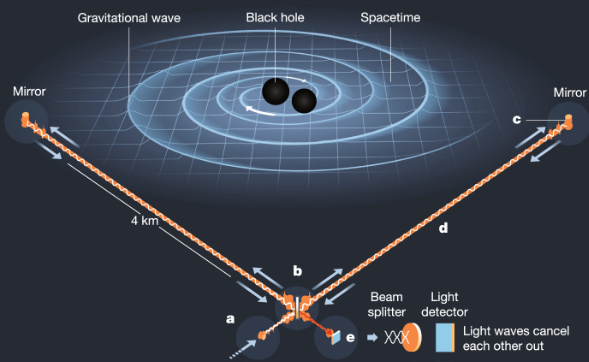Researchers Reveal Graviton-Induced Uncertainty Relation in Gravity
Researchers have made an important discovery in trying to combine two areas of physics—classical gravity and quantum mechanics. They found a new type of uncertainty relation, which comes from the noise made by gravitons. Gravitons are hypothetical particles that scientists believe may carry the force of gravity. Studying these particles could help us understand quantum gravity, which has been a difficult problem in physics for a long time.
Difference Between Classical and Quantum Physics
Classical physics explains how large objects like planets, cars, or people behave using well-known rules, such as Newton’s laws.
Quantum physics, on the other hand, deals with the strange behaviors of tiny particles, like atoms and electrons, which follow different rules.
The challenge for scientists is to create a theory that works for both big objects (classical physics) and tiny particles (quantum physics), especially in extreme places like black holes or around neutron stars.
What is Quantum Gravity (QG)?
Quantum gravity is a field of study where scientists try to understand how gravity works at the level of tiny particles. Normally, gravity is thought of as a force that affects large objects, but quantum gravity focuses on how it behaves when both gravity and quantum mechanics are important.
For example, around black holes, gravity is so strong and things happen on such small scales that we need a theory combining both classical and quantum ideas.
What is Gravitational Noise?
Researchers have found that when gravitational fields are studied using quantum mechanics, they create tiny fluctuations, or “noise.” These fluctuations can be detected by sensitive tools like LIGO, which looks for tiny changes in distances caused by gravitational waves. This noise behaves in a way that suggests gravity might have a quantum nature, and could even be evidence of gravitons.
Research Contributions
Two researchers, Prof. Sunandan Gangopadhyay and Mr. Soham Sen from the S.N. Bose National Centre for Astrophysics, have been studying how quantum gravity affects objects that are falling freely. They discovered a new type of uncertainty relation caused by the noise from gravitons. This is an important clue that shows gravity may indeed work at a quantum level.
Generalized Uncertainty Principle
The uncertainty relation they found connects the position and momentum of particles to the noise created by gravitons. This means that gravity doesn’t just affect objects in the usual way but could also have quantum effects. The research team says this discovery shows that gravity might have a quantum nature, making their work very important in the study of quantum gravity.
Publications
- Soham Sen & Sunandan Gangopadhyay, “Uncertainty principle from the noise of gravitons”, Eur. Phys. J. C 84 (2024) 116.
- Chawla & M. Parikh, “Quantum gravity corrections to the fall of an apple”, Phys. Rev. D 107 (2023) 066024.
This discovery is a key step forward in understanding how gravity and quantum mechanics might be connected, which could change how we understand the universe.
Month: Current Affairs - September, 2024
Category: Science & Technology Current Affairs








